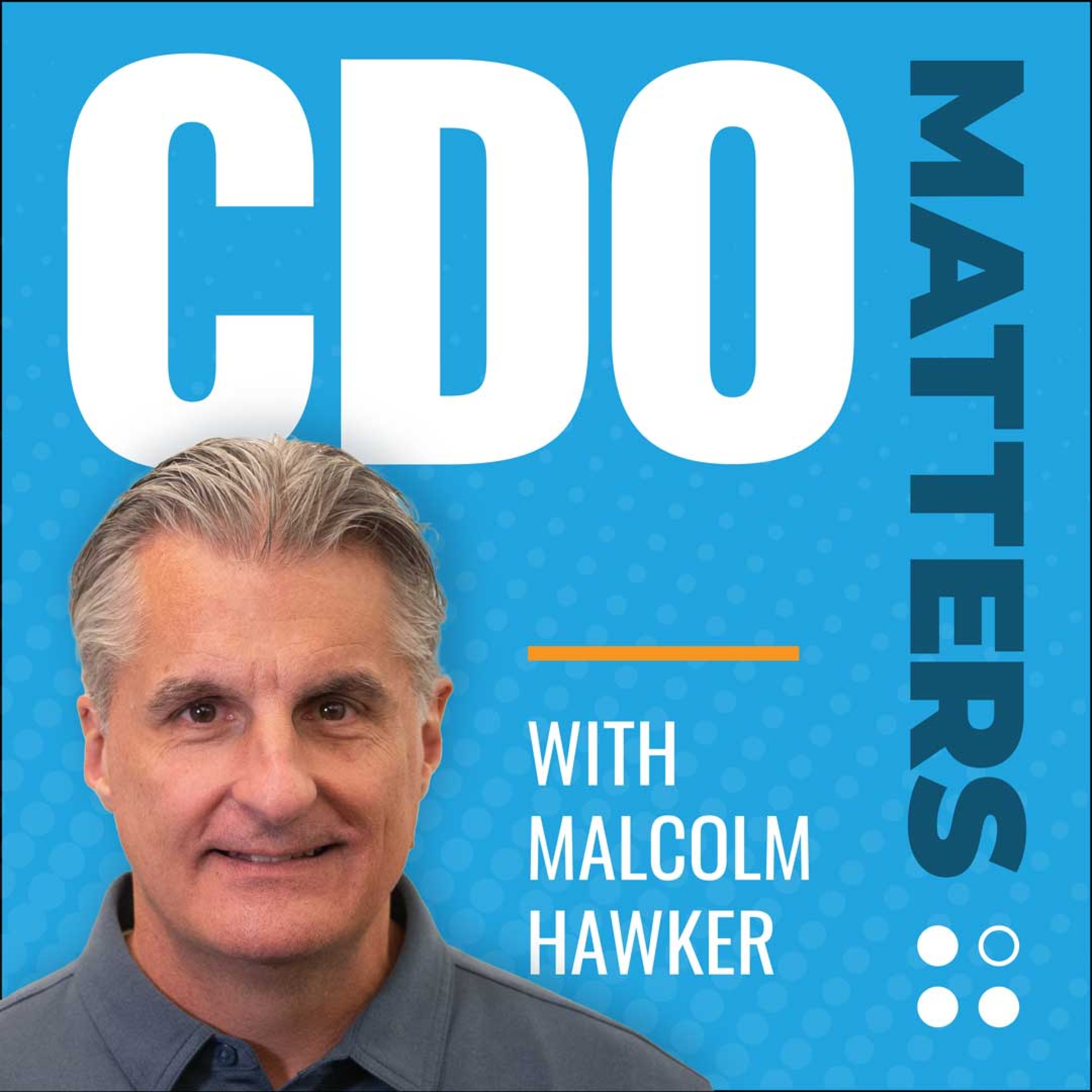

CDO Matters Podcast
Profisee
How can today’s Chief Data Officers help their organizations become more data-driven? Join former Gartner analyst Malcolm Hawker as he interviews on thought leaders on data fabrics, blockchain and more — and learns why they matter to today’s CDOs. If you want to dig deep into the CDO Matters that are top-of-mind for today’s Chief Data Officers, this show is for you.
Episodes
Mentioned books

6 snips
Jan 11, 2024 • 1h
CDO Matters Ep. 41 | A Chat with Microsoft Americas CDAO, Erik Zwiefel
Malcolm welcomes Erik Zwiefel, CDAO of Microsoft Americas, on this live episode. Topics include AI readiness for CDOs, data governance and responsible AI, the future of technology and LLMs, leveraging tools for data quality, and understanding data lake house architecture.

Dec 28, 2023 • 55min
CDO Matters Ep. 40 | The Top Data Trends of 2023
This podcast explores the top data trends of 2023, including the growth of AI, the demise of the data mesh, and advancements in language-based deep learning models. It also discusses the importance of mindset in data quality, the future impact of ETFs, blockchain, and data valuation, and the significance of valuing and measuring data impact.

Dec 14, 2023 • 46min
CDO Matters Ep. 39 | How to Create a Data Culture
The podcast discusses the importance of creating a data culture within organizations and the challenges faced by data and analytics leaders. It explores the role of organizational culture and HR in fostering a data-driven culture. The relationship between data culture and intuition in decision-making is also explored. Additionally, the podcast highlights the need for data leaders to quantify business outcomes and model the impacts of decisions using AI and decision science.

Nov 30, 2023 • 51min
CDO Matters Ep. 38 | It’s Crunch Time for CDOs with Mark Stouse
Mark Stouse, Founder and CEO of Proof Analytics, discusses the frustration organizations face in realizing benefits from data management investments. He highlights the need for CDOs to prioritize specific business needs and outcomes. The podcast covers challenges of operationalizing analytics, the value of automation and targeted AI, establishing causality in predictive analytics, and the current state of data science functions.

6 snips
Nov 16, 2023 • 57min
CDO Matters Ep. 37 | Understanding and Navigating Change with Dan Everett
In this episode, Dan Everett, an expert in understanding and navigating change, discusses the challenges of driving change as a new data leader. He shares strategies for fostering fairness and engaging employees, explores the influence of culture on organizational behavior, and emphasizes the importance of questioning ingrained behaviors.

Nov 2, 2023 • 47min
CDO Matters Ep. 36 | The Association with Wendy Turner-Williams
Wendy Turner-Williams, former CDO of Tableau and VP of Data Strategy for Salesforce, discusses her vision for The Association: a community of data practitioners dedicated to overcoming challenges. They also explore topics such as Salesforce's V2 Mom process, the growth & impact of AI, challenges faced by CDOs, collaboration with cyber teams, and creating peer-to-peer standards & data sharing.

Oct 19, 2023 • 43min
CDO Matters Ep. 35 | Speaking the Language of Business and Data with Veronika Durgin
Veronika Durgin, VP of Data with Saks, shares insights on applying the '30% rule' to learn the language of business. They discuss centralization benefits, the obsession with decentralization, and the importance of a common language in data management.

4 snips
Oct 5, 2023 • 50min
CDO Matters Ep. 34 | Modern Data Leadership
The podcast explores the need for modern data leadership in a world of constant change. It discusses challenges faced by data leaders, the importance of prioritizing customers, and shifting focus from data quality to business value.

Sep 21, 2023 • 55min
CDO Matters Ep. 33 | What CDOs Need to Know about Data Engineers with Joe Reis
Joe Reis, co-author of the bestselling O'Reilly book, 'Fundamentals of Data Engineering', discusses the importance of understanding and managing data engineers effectively. They also talk about the challenges and strategies for bridging the gap between development and data teams, as well as the future of models in data engineering and the significance of having a clear data strategy.

28 snips
Sep 7, 2023 • 46min
CDO Matters Ep. 32 | Value Engineering
In this episode, Laurence Young, a value consultant, discusses the importance of improving data from a business perspective. They explore showcasing the value of data investments and emphasize the significance of revenue as a metric for growth. The speaker also shares insights on quantifying the return on investment for data initiatives and addresses challenges in improving customer data. They highlight the importance of aligning organizational goals with data projects and connecting business metrics with data quality metrics.


